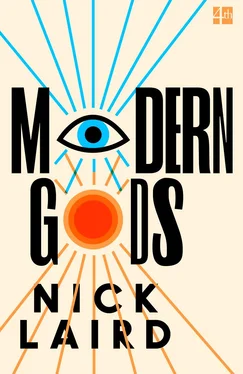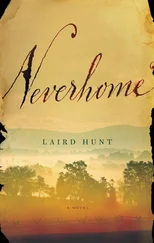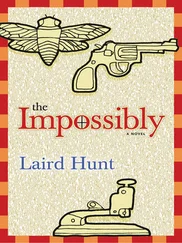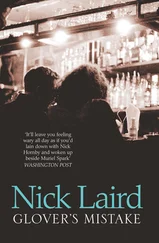“I’ll do that when I’m back.”
“Just pull it,” Bill sighed.
She could see the danger of the moment, and part of her wanted it all to go wrong. She wanted him exposed to her family. She wanted them to know the truth of it. He continued to push the cracker at the curve of her stomach and she ignored it.
“Ah, just pull it now, pull the cracker, you fat cunt,” Bill muttered, and grabbed her arm.
Across the linen tablecloth and pale candles and silver reindeer napkin rings, Judith lowered her head into her hands. Spencer jumped up. All of him shivering with tension under his shirt. Part of Alison detached from the scene; that part was very interested in how all this would play out.
Bill worked out a laugh as Kenneth slowly got to his feet and said, “Perhaps you should go upstairs, to Ali’s old room, and take a nap.”
The note in her father’s voice meant business. Spencer’s eyes shone with a defeated fury. Bill stared drunkenly ahead of him into the bowl of homemade cranberry sauce and then lazily turned to Kenneth, grinned wolfishly, and asked, “Why don’t you go and have a lie down, oul fella, before I put ye on yer fucking back?”
Spencer was on him. Two chairs were knocked over. Although Bill had a few inches’ advantage, Spencer got him in a full nelson headlock and dragged him out onto the porch. It ended with Spencer banging Bill’s head against the doorframe.
Bill joined the AA group that met in the community center off the Dungarvan Road. She did what she could. She poured bottles down the sink. She told him she loved him and wanted to help him. He avoided the old crowd from the station and didn’t go to the pub after work. They began attending her parents’ Presbyterian church out at Killyclogher. She could feel him trying, really trying, the constant effort coming off him like a buzzing. He was stretched and tense as a balloon, always on the cusp of losing it. It was necessary to devise stratagems. Each night she made dessert, she ran him a bath, she checked the listings to try to ensure there was some sport or a documentary or an action flick for him to watch. She bought a thousand-piece jigsaw of The Last Supper in Toymaster and started it on the dining room table, called it their project. They spent a single evening with their heads engrossed in it, so close they were almost touching, and she thought, as she sometimes thought, that this could work. The next night he wouldn’t look at it. Called it boring and stupid, and asked what the fuck was the point of a jigsaw. You put it together and then you pulled it apart. Like a marriage, she thought. She spent two weeks sitting at the table for an hour or two here and there, and hadn’t even half of it filled in. There was the entire sky still to do. She looked in the blank, unhelpful face of Jesus (out of the whole picture, he was the only one looking at the viewer) and swept the whole lot into a bin bag.
It amazed her now how long it took her. It was a Friday night and she was washing up after dinner, watching the sun sinking between the town’s twin spires—Catholic and Protestant—and she thought, This isn’t going to get any better . She’d taken a pregnancy test at school that afternoon—according to her diary her period was three weeks late—and the little cross of St. Andrew surfaced in the stick’s window, a blue crucifixion. Felt nothing. Not happy, not sad. Nothing. She taught the rest of the day in a daze of nothingness, smiling at the children, but absent inside. Now she looked at her own daughter—soft-limbed, big-eyed, spellbound in her high chair in front of the telly, but no longer a baby, surely only a few months away from the consciousness of what it meant when your daddy passed out in an armchair. She peeled off the rubber gloves, lifted the child to halfhearted protestations, went upstairs, started packing.
Four months after she moved back home, Kenneth had another, minor, stroke, and Alison took early maternity leave and entered—little by little, toe by toe—the family business. Showing a home here, making a phone call there. Spencer had been working in Donnelly’s Estate Agents for years, but if he objected to her coming in, he never said anything directly, and Alison discovered she was good at it, at selling homes. She’d grown up with the lexicon of estate agency as her first language. Convenience. Location. Good bones. Character piece. Low maintenance. High yield. In recent years the property TV shows had added to her stock of ready-made phrases—wow factor, curb appeal, forever home, ticking the boxes—but it always felt a little ridiculous using them. She did, though. Her direct, judgmental manner worked on people; they wanted to agree with her, and if Alison made sure prospective buyers noted certain things, they were less likely to focus on certain other things, like the smell of the downstairs bathroom or the rising damp in the garage. She swept into a room and took control, opened blinds and cupboards, pointed out the overwhelming economic benefits of an electric shower or a multi-fuel stove or the lagging on a boiler. One wet cold morning in September—as she told the recently widowed Lily Burns to think of herself sitting out here on the patio, in the suntrap made by the fence and the back wall of the kitchen, reading a book and having a glass of wine or a cup of tea—it occurred to her that if she had a gift for presenting things not as they are, but as they really should be, well, that was only to be expected of someone who’d lived with an alcoholic for as long as she had.
Liz was sleeping off her jet lag. Kenneth had gone to Ray Mullens’s funeral and Judith and Alison stood alone in the kitchen. Alison turned the carousel display of coffee capsules for the new machine, while Judith winced at her daughter’s neck: “He must be a very heavy sleeper.”
“Oh, he woke up almost immediately. Do you want cold water in this?”
“Just a splash. Is it just the neck?”
“He kneed my thigh and there’s a bruise but it’s nothing. Did you see the doctor yet about your bloods?”
“Next Wednesday.”
“How’s the tummy been? There’s more milk powder in a tub in the bag, but he shouldn’t need it.”
“Not bad at all. I’ll give him a biscuit later.”
Judith took the bottle out of Alison’s hand, and bent down to put her face in Michael’s. He sat still strapped in his car seat on the living room floor, asleep.
“Oh, I know what my little boy needs, don’t I?”
As Alison stood up, Judith touched her arm.
“It’s not like Bill again, is it? He wouldn’t hurt you, would he?”
“Stephen wouldn’t hurt a fly!”
Alison waited for her mother to say, “It’s not flies I’m worried about,” accompanied by a steady imploring gaze that Alison would avoid meeting. But nothing happened, her mother moved away, and to cement her victory, Alison cheerfully lifted a millionaire’s shortcake and took a bite from it. She knew Judith thought her younger daughter had a history of making bad choices. But Judith herself hadn’t made many better ones. She’d married the first man who came along, and if they were still together that was part indolence and part convention. Whereas Alison had faced up and taken hard decisions and was in many ways a braver woman than her mother. No one could deny that. She’d risked things for love! She’d suffered! All of this she intimated by the brusque way she buttoned up the second and third buttons of her lemon-colored wool coat. Her mother walked past her, opened the fridge door, and rearranged various Tupperware containers.
“If you see your brother remind him he said he was coming for his dinner.”
“I wasn’t going to call into the office. I was just going to pick Isobel up.”
Читать дальше












